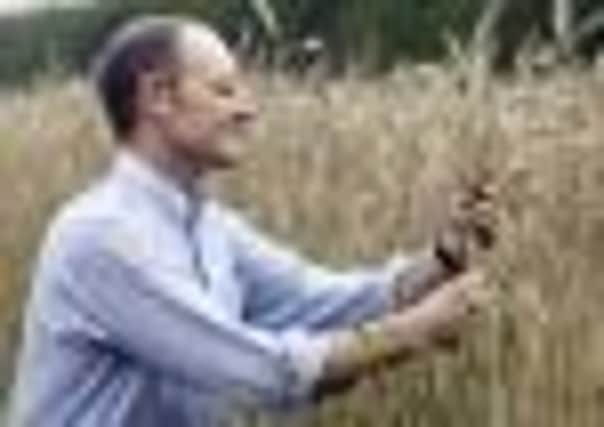Straw barn project that’s spelt success


Mr Sellers has been growing it for seven years at Carr House Farm, Foston on the Wolds, to cater for the small market for spelt flour nationally and for spelt bread at the Side Oven Bakery, run by his wife, Caroline. Both farm and bakery are organic. Spelt products are valued for nutrition and taste which have been bred out of modern wheats. And they are found more easily digestible by some people who have problems with standard bread.
There is also a small market for spelt straw, which is longer and stronger than most modern crop stems and valued by thatchers.
Advertisement
Hide AdAdvertisement
Hide AdMr and Mrs Sellers decided to use some of it to make an environmentally friendly barn which would double as a classroom for education days.
Local joiner and bale-building specialist Sam Atkinson used 350 standard bales to make an interior space measuring eight metres by 15. The walls were built into a timber framework on top of 18-inch-high brick piers. The straw is plastered on both sides with an old-fashioned plaster mixed by the Voase family, at Brandesburton, from lime, clay and their own hemp as a binding and insulating agent. With some decorative wooden cladding, the building cost around £70,000.
“We could have done it cheaper with standard agricultural building materials but to build it out of brick would have been more expensive,” said Mr Sellers.
Apart from giving the building rarity value, the length of the spelt fibres should mean a longer-lasting bind with the plaster. And Mr Sellers thinks he might get some reward in the long run from their organic nature, because agro-chemicals weaken straw. He said: “When combined with plaster on both sides, straw-bale walls are fireproof, vermin proof and airtight, as well as good insulation.”
Advertisement
Hide AdAdvertisement
Hide AdHe has had to invest a bit to carve his niche in the spelt market, which depends mainly on imports. The seeds of the crop are tough and standard combines will not thrash out all the chaff, so a further de-hulling machine is required. See www.sideoven.com for more on the business.
See www.sacarpentry.co.uk for contact details for builder Sam Atkinson, who is based at Brind, near Howden.